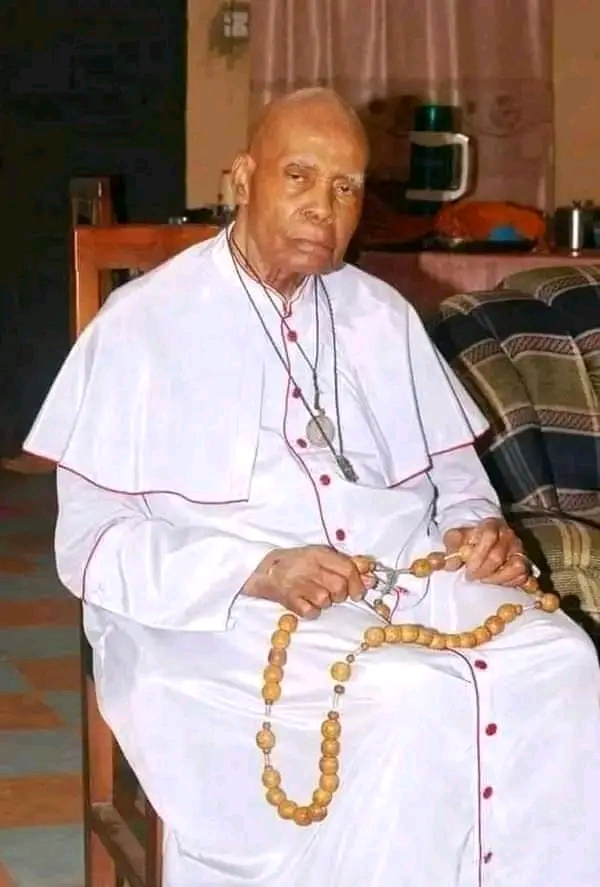News
Nigeria taking steps to strengthen naira, says Edun

Strategic steps are being taken by the Federal Government to de-dollarise the economy and boost the naira value, Minister of Finance and Coordinating Minister for the Economy, Wale Edun, said yesterday in the United States (U.S.).
He spoke during the investors parley held on the sidelines of the ongoing World Bank/International Monetary Fund Annual Meetings in Washington DC.
As a partially-dollarised economy, Nigerian operates with dollar bias for international trade, finance invoicing and of recent, store of value.
Under high and persistent inflation, market participants defend themselves by shifting to the dollar.
The most common type of dollarisation is financial dollarisation (FD), or asset substitution, caused by a poor performance and falling value of the local currency.
The local currency is used more for payment transactions but is replaced by the dollar as saving asset or store of value.
Speaking on the theme: “A new Nigeria: An era of bold reforms”, Edun said that the government has asked manufacturers and businesses to invoice in naira, instead of dollar, thereby reducing demand for dollar in the domestic market.
At the investors parley were Standard Chartered Bank, Goldman Sachs, JP Morgan, and strategic investors in the economy. Also present at the event are Governor of the Central Bank of Nigeria (CBN), Olayemi Cardoso, Director-General, Debt Management Office, Patience Oniha, Director-General of the Budget Office of the Federation, Tanimu Yakubu; Permanent Secretary, Federal Ministry of Finance, Mrs. Lydia Jafıya among others.
Edun, said government is also taking steps to ensure that more dollar flow into the economy, to stabilize and protect the naira.
The minister said: “We are asking people to invoice in naira, rather than dollar, thereby reducing the demand for dollar. We have moved to free market pricing in petrol, jet fuel, kerosene, and that is the first time in 40 years that we are doing that.”
According to him, increase in oil production means more dollar inflows into the economy.
He also spoke of the effort by security operatives to ensure sustained rise in oil production, adding that the financial markets and bond markets remain open to Nigerians in Diaspora to invest dollars to the economy.
Edun explained that essentially, it was October 2, that petrol subsidy was effectively removed through market-pricing practices.
The minister said: “It is now that we will assess the gains of the subsidy removal, which will be a huge dividend to the people.”
On his part, Central Bank of Nigeria (CBN) Governor Yemi Cardoso, said the last Monetary Policy Committee took cognisance of petrol subsidy removal, in its decisions. He said the CBN will issue more Open Market Operation (OMO) bills, to ensure market mechanisms reflect effectively.
On reports, that the Nigeria National Petroleum Corporation (NNPC) is mopping up dollars from the open market, Cardoso said: “The NNPC buying dollars from open market is not for the CBN to determine, because the NNPC remains a customer that is entitled to make its business decisions.”
He said with higher interest rates, more Nigerians will be more inclined to produce locally, even as inflows from Diaspora remittances continue to rise.
Deputy Governor, Economic Policy, CBN, Mohammed Sani-Abdullahi, said the apex bank was working to raise non-oil export earnings from around N3.6 billion to $10.3 billion. He said the external reserves have also hit a new high of $40.3 billion, and will continue to rise as oil production grows.
Sani-Abdullahi, said the Federal Government has taken strategic steps, to ensure that Nigeria remains a good investment destination for local and foreign investors.
Speaking on the naira, he said: “We’re not defending the naira, and we used to. We are rather building buffers. We want to improve supply organically, without the CBN putting in money all the time. We want to find that naira finds its natural level”.
We want to address liquidity risks, and ensure that the market functions. We are still in price discovery, we want to get to transparency and market determined rate for the naira.
He attributed volatility and rising demand for dollar to people’s belief that forex will not be available when they need it, hence the rush for the greenback.
Sani-Abdullahi, said there has been work to strengthen public finance, make tax administration and collection stronger, and build non-oil export economy.
News
Insecurity! Bandits k!ll 7 farmers, burn 50 bags of maize in Niger state

Bandits have k!lled seven farmers, including a vigilante, and burnt 50 bags of maize inside a truck in Bangi, Mariga Local Government Area of Niger State.
Sources on Saturday, November 23, told Daily Trust that the victims had gone to bring the harvested maize home from their farm when the bandits ambushed them, k!lled all the occupants in the truck and set the truck.
Bandits have killed seven of our farmers who had gone to farm to bring the maize they had harvested home. The attackers hid and waited until after the victims had loaded the 50 bags of maize into the truck and were about to take off to return home when they opened fire on them. After k!lling the victims, they also set the truck and the 50 bags of maize already loaded ablaze,” a source said.
He said it was difficult for farmers in Mariga to harvest their crops this year due to k!llings and kidnappings by bandits.
News
SAD! Roman Catholic Oldest Priest Monsignor Thomas Oleghe dies at 103

The Bishop of the Catholic Diocese of Auchi, most Rev. Dr. Gabriel Ghieakhomo Dunia announces the passing unto eternal glory of Rt. Rev. Monsignor Thomas Oleghe, at the Immaculate Conception Cathedral Auchi, during the solemnity of Christ the King
Rev. Monsignor is the oldest Catholic Priest in Nigeria.
Monsignor Oleghe death is very remarkable as the centenarian died during the feast of Christ the King.
The demise of the priest of the order of Melchizedek should be best described as (TRANSITION TO GLORY)
News
NECO accredits more foreign schools for SSCE, BECE

The National Examinations Council (NECO) has given accreditation to more foreign schools to write the Senior School Certificate Examination (SSCE) and the Basic Education Certificate Examination (BECE).
The Acting Director, Information and Public Relations, Mr. Azeez Sani, disclosed this in a statement.
The newly accredited schools are in Niger Republic and Equatorial Guinea.
“NECO Accreditation Team visited the Schools to assess their readiness to write the SSCE and BECE.
“The Accreditation Team inspected classrooms, laboratories, libraries, computer laboratories, workshops, examination halls and sport facilities to determine their adequacy and suitability for NECO Examinations.
“After a thorough evaluation and comprehensive assessment, the schools were granted full SSCE and full BECE accreditation status,” the statement said.
The statement added that the accreditation of additional foreign schools is a testament to NECO’s commitment to providing quality education and assessment beyond the shores of Nigeria.
“With its expanding global presence, NECO is poised to become a leading examination body in Africa, offering opportunities for students worldwide to benefits from its expertise, thus contributing to the advancement of education in Africa and beyond.”
In another development, the statement disclosed that candidates are participating in the on-going NECO SSCE External in Diffa, Niger Republic.
“The UNHCR School, Diffa, Niger Republic is the first NECO SSCE External Centre outside Nigeria.”
NECO examinations are now written by candidates in Benin Republic, Togo, Cote’ d’Ivoire, Niger Republic, Equatorial Guinea and Saudi Arabia.
-

 News11 hours ago
News11 hours agoSimon Ekpa: FG’s attempt to extradite self acclimated freedom fighter may hit brickwall
-

 News20 hours ago
News20 hours agoNUJ-FCT Elections: Comrade Ike To Flag-Off Campaign With Free Medical Checks, Treatment
-

 News22 hours ago
News22 hours agoPolice rescue abducted Emirates Airlines Airport Services Manager
-

 Metro21 hours ago
Metro21 hours agoAnambra Police arrest native doctor, one other for armed robbery, kidnapping
-

 News22 hours ago
News22 hours agoHoR to lead historic march, other Key initiatives against gender-based violence
-

 News22 hours ago
News22 hours agoPresident Tinubu Leaves Brazil After G20 Summit
-

 News22 hours ago
News22 hours agoWike Aide to Ugochinyere : You’re a political misfit in Hushpuppi’s mode
-

 Politics10 hours ago
Politics10 hours agoHardship: PDP Governors seek review of governance policies








